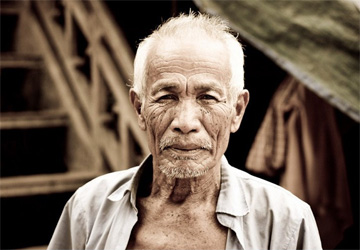Chinese Tuesdays: Laobaixing

老百姓 (lǎobǎixìng) – literally "old hundred names", in reference to the most common Chinese surnames – is a common term for "ordinary folk" or "the man on the street". It even works as an adjective, as in "he's really 老百姓".
How did the term come about? Apparently, due to naming taboo ("a cultural taboo against speaking or writing the given names of exalted persons in China"). During the Tang Dynasty it became necessary to avoid the word 民 (mín), as that character was in the given name of the Emperor Taizong, so instead of saying 人民 (rénmín) to refer to the "common folk”, people started using 百姓 (bǎixìng) instead.
More recently (post 1963 at least) that became 老百姓, or you can use 平民百姓 (píngmínbǎixìng) too. And from Sinosplice, here they are – the 100 most common surnames in China.
•
Edited from Sam Duncan's blog 汉语小发现

















